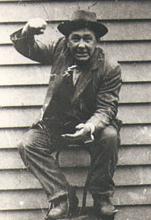Hegel-by-HyperText Resources
1841:
The World-Historic Split
in Western Philosophy
The "Expurgation of Hegelianism"
As well as having been embraced by the Prussian Monarchy as a kind of official creed, Hegel left behind him a movement which inspired powerful revolutionary criticism of the very official society which had sanctified him.
The ten years after Hegel's death were the apogee of Hegelianism. His students, who had lived under the master's spell during his lifetime, went out and popularised his teachings and translated them into the language of politics - or much more correctly, translated politics into the language of Hegelianism.
In 1841, the establishment deliberatively moved to "expunge the dragon's seed of Hegelian pantheism" from the minds of Prussian youth. A newly-appointed Minister for Culture mobilised Friedrich Schelling to come to Berlin and do the job.
Friedrich Schelling was the second, and in 1841, the only living representative of Classical German Philosophy. The former Professor of Philosopher at Jena after Fichte's dismissal for heresy, who as a youth had been a close friend of Hegel, had both encouraged Hegel and enlisted his support in his struggle against Fichte. Although pushed into the philosophical background by the great G W F Hegel, he had also out-lived Hegel.
“Ask anybody in Berlin today on what field the battle for dominion over German public opinion in politics and religion, that is, over Germany itself, is being fought, and if he has any idea of the power of the mind over the world he will reply that this battlefield is the University, in particular Lecture Hall No. 6, where Schelling is giving his lectures on the Philosophy of Revelation. For at the moment all the separate oppositions which contend with Hegel's philosophy for this dominion are obscured, blurred and pushed into the background by the one opposition of Schelling; all the attackers who stand outside philosophy, Stahl, Hengstenberg, Neander, are making way for a fighter who is expected to give battle to the unconquered on his own ground. And the battle is indeed peculiar enough. Two old friends of younger days, room mates at the Tübingen theological seminary, are after forty years meeting each other again face to face as opponents; one of them ten years dead but more alive than ever in his pupils; the other, as the latter say, intellectually dead for three decades, but now suddenly claiming for himself the full power and authority of life. Anybody who is sufficiently "impartial" to profess himself equally alien to both, that is, to be no Hegelian, for surely nobody can as yet declare himself on the side of Schelling after the few words he has said - anybody then, who possesses this vaunted advantage of "impartiality" will see in the declaration of Hegel's death pronounced by Schelling's appearance in Berlin, the vengeance of the gods for the declaration of Schelling's death which Hegel himself pronounced in his time”.
“An imposing, colourful audience has assembled to witness the battle. At the front the notables of the University, the leading lights of science, men everyone of whom has created a trend of his own; for them the seats nearest to the rostrum have been reserved, and behind them, jumbled together as chance brought them to the hall, representatives of all walks of life, nations, and religious beliefs. In the midst of high-spirited youths there sits here and there a grey-breaded staff officer and next to him perhaps, quite unembarrassed, a volunteer who in any other society would not know what to do for reverence towards such a high-ranking superior. Old doctors and ecclesiastics, the jubilee of whose matriculation can soon be celebrated feel the long-forgotten student haunting their minds again and are back in college. Judaism and Islam want to see what Christian revelation is all about: German, French, English, Hungarian, Polish, Russian, modern Greek and Turkish, one can hear them all spoken together, - then the signal for silence sounds and Schelling mounts the rostrum.
“A man of middle stature, with white hair and light-blue, bright eyes, whose expression is gay rather than imposing and, combined with a certain fullness of figure, indicates more the jovial family-man than the thinker of genius, a harsh but strong voice, Swabian-Bavarian accent, that is Schelling's outward appearance”. [Engels, Schelling on Hegel, December 1841]
The audience also included the Russian anarchist, Mikhail Bakunin, and Søren Kierkegaard, who was to be the founder of Existentialism. Schelling's proposition was that Hegel had confused "essence" and "existence", and what was required was a return to a philosophy of existence. Kierkegaard ridiculed Hegel for "reconstructing" history in retrospect, "but history has to be lived forwards, not backwards". For his part, Engels insisted that the youth and all enemies of the autocracy must rally to the defence of Hegel. He characterised Schelling's proposition as a "philosophy of revelation", or "positivism" (as opposed to the "negative" standpoint of Reason).
Schelling did not, as it turned out, win much support for his position, but the young Danish theologian Kierkegaard, declaring the bankruptcy of Reason, can be seen as the founder of Existentialism, which is continued through Friedrich Nietzsche, Edmund Husserl, Martin Heidegger and through Heidegger is a significant component of today's philosophical cloudscape. Existentialism appears to pick up from Schelling's denunciation of Hegel's focus on Essence, and substitutes for Hegel's study of the Essential genesis of notions an analysis of Being.
Arthur Schopenhauer, who had taught at the University of Berlin for 24 semesters, and had spoken regularly to an empty lecture hall, next door and at the same hour when Hegel lectured to a large and ever-growing audience. In May 1825 he had renounced his career to live as a recluse. In 1844, an obscure Berlin bookseller accepted the manuscript of Schopenhauer's oft-rejected The World as Will and Idea without remuneration and this book - the founding work of Voluntarism, in the style of Classical German philosophy but passionately hostile to its spirit - gained Schopenhauer worldwide recognition and caused Nietzsche to speak of Schopenhauer as his "great teacher".
In Britain, John Stuart Mill and in France Auguste Comte came forward as the proponents of Positivism. Positivism is a difficult thing to characterise, because like any ideology, it is intimately connected with the fate not of any given proposition or thesis, but with the fate of a social entity and rises and falls and transforms itself according to the fate of the social movement it reflects. Positivism is that current in epistemology which seeks to speak for science; it rejects "speculation" and sees the task of philosophical knowledge as summing up and expressing the positive knowledge gathered by the sciences. In the first phase of its development, first place was given to sociology; in this it expressed a belief in the liberating power of science and the urgent need for science to replace religion and all forms of non-scientific "metaphysical" or religious speculation, and consequently the need for a scientific conception of society, based on the rational analysis of the data of the senses.
Mikhail Alexandrovich Bakunin had studied Hegel in Moscow but had emigrated in 1840 to join the Young Hegelians in Berlin. His later career would see Bakunin fighting in the Revolution of 1848 in Prague and Dresden, returning to Russia, exiled to Siberia, joining the First International but finally expelled in 1872 and founding the Narodnik and Anarchist movements in Russia - the most extreme of bourgeois radicals, advocating immediate insurrection and the smashing of all states.
Earlier in 1841, Ludwig Feuerbach had published his Essence of Christianity: “with one blow it pulverised the contradiction, in that without circumlocutions it placed materialism on the throne again. Nature exists independently of all philosophy ... the spell was broken; the "system" was exploded and cast aside ... one must have experienced the liberating effect of this book to get an idea of it. Enthusiasm was general ... but a philosophy is not disposed of by the mere assertion that it is false... it had to be "sublated" in its own sense, ... the new content which had been won through it had to be saved ...” [Engels' Ludwig Feuerbach and the End of Classical German Philosophy].
In almost a moment, following the sacking of Kaiser Wilhelm Friedrich's Culture Minister in 1841, sprung Existentialism, Voluntarism, Anarchism, Positivism and Materialism!
Engels said of Schelling's 1841 speech:
"It will be our business to follow the course of his [Schelling's] thinking and to shield the great man's [Hegel's] grave from abuse. We are not afraid to fight. Nothing more desirable could have happened to us than for a time to be 'The Church Oppressed'. There the minds part. What is not genuine is proved in the fire, what is false we shall not miss in our ranks. The opponents must grant us that youth has never before flocked to our colours in such numbers, that the thought which dominates us has never before unfolded itself so richly, that courage, conviction, talent have never been so much on our side as now. Hence we shall rise confidently against the new enemy; in the end, one will be found among us who will prove that the sword of enthusiasm is just as good as the sword of genius.
"Let Schelling see whether he can muster a school. Many only join him now because they are opposed to Hegel and accept with gratitude anybody who attacks him ..." [Schelling on Hegel, December 1841]
In October 1843, Engels published his Outlines of a Critique of Political Economy, which caught the attention of Karl Marx and the 23-year-olds struck up a correspondence. ...
By 1848, the year of publication of the Communist Manifesto, Europe was ablaze with Revolution. For the first time, the proletariat came on to the political scene as a force for itself. The Revolution was defeated, with the Junkers gaining control in Germany and the Army in France. But throughout the following period, the working class remained the chief threat to bourgeois society. The First International was founded in 1863, with the Trades Councils in Britain and the rapid rise of the German Social Democratic Party and the Paris Commune holding state power for a short period in 1871.
The emergence of labour as a conscious social force puts a final end to the classical period of bourgeois epistemology. The explosion of 1841 anticipates this explosion and the irreversible sea-change which follows. "Nature" has spoken. For bourgeois philosophy prior to this time, the labouring masses (or what the postmoderns call the “sub-altern” - the “congregation” who get spoken of and to, but have themselves no right to speak) were like Nature, something ‘beyond sensation’, the unconscious.
Irrationalism & Positivism
The period of development of bourgeois philosophy from the 1840s to the 1860s is the period in which the tendencies and forces of a new epoch of development are formed. The period of expansion of capitalism which followed the defeat of the Commune in 1871 up to the exhaustion of the period of colonial expansion and the opening of the period of Imperialism at the turn of the century, marks the next specific period in the development of bourgeois ideology.
From the 1840s, it is no longer possible for bourgeois ideology to be developed in the form of a "secular religion", but ideology is worked out in conflict within specific, separate domains of enquiry, principally: political economy, psychology, natural science and sociology.
The figures who launch the initial attack on Hegel, Feuerbach and Schelling, did not gather around them a substantial and lasting following. John Stuart Mill and Auguste Comte were already well-known by the end of the 1830s, and as it turns out, the principal figures of the first period immediately following 1841 are Mill, Comte and later Herbert Spencer (Positivists), Søren Kierkegaard and Arthur Schopenhauer (the precursors to Existentialism), the Anarchist Mikhail Bakunin and Communists Karl Marx and Frederick Engels.
Politically speaking, these figures cover as wide a field as it is possible to imagine.
Without blurring the differences between Anarchism and Communism and the class basis of these political differences, it is not sensible to comprehend either Marxism or Anarchism as part of the organism of bourgeois ideology. They will be considered separately elsewhere.
The others philosophically speaking divide clearly into two camps. Despite the mutual hostility which is a professional prerequisite and despite the political diversity within each camp, we have on the one hand, the "sociologists" Comte, Mill and Spencer, and on the other hand, the "psychologists" Kierkegaard and Schopenhauer.
The Human Condition
The young Ludwig Feuerbach expressed the common Essence of the downfall of Hegelianism, and he has to be credited with the fact that he launched his attack on Hegel while Hegel was still flavour of the decade:
"Modern philosophy has realised and negated the divine being who is separated and distinguished from sensation, the world, and man. But it realised and negated this divine being only in thought, in reason, and indeed in that reason that is also separated and distinguished from sensation, the world, and man. Namely, modern philosophy has proved only the divinity of mind; it recognised only mind, and indeed the abstract mind, as the divine and absolute being." [s.18, Principles of Philosophy of the Future, published 2 years after The Essence of Christianity, in 1843]
When Comte, for instance, says:
"The Universe is to be studied not for its own sake, but for the sake of ... Humanity. To study it in any other spirit would not only be immoral, but also highly irrational. For, as statements of pure objective truth, our scientific theories can never be really satisfactory ... It is for social feeling to determine these limits; outside which our knowledge will always remain imperfect as well as useless ... the intellect would, under Positivism, accept its proper position of subordination to the heart",
there is a significant debt to Hegel, but he also is definitively calling for an end to "metaphysics", and when Kierkegaard says: "science, fully as much as poetry and art, assumes a mood ... an error in modulation is just as disturbing as an error in the exposition of thought" we can recognise something of the same thought. The problem is that Comte's solution (which was probably the dominant one) led to a further shattering of the unity of human labour, with 1,001 "specialists" beavering away in their own little area. Thus, the great synthesis which Hegel achieved, albeit idealistically, was lost on the very people who most needed it.
Feuerbach opened the first, historical section of Philosophy of the Future with: "The task of the modern era was the realisation and humanisation of God - the transformation and dissolution of theology into anthropology." And he shows that this begins with Protestantism. Everyone was saying that the human agency did not just express something (such as The Absolute Idea), this human "agency" was itself the issue, man was not just an "agent". This was already implicit in the highly political way in which the Young Hegelians were promoting philosophy, and the establishment knew it!
Kierkegaard is on about sin; he wants to not just observe sin, explain it, call it an illness - it must be denounced, and denouncing sin meant real pain and suffering. He is against "scientific objectivity", of dispassionately looking at sin as something neutral, objective. His whole thing about moods is a knife aimed at the whole basis of Logic, "Rationalism" (in the degraded sense of the word) and Absolute Idea.
Schopenhauer wanted to place the human, subjective Will at the centre of the system, not an objective thought form but a very subjective, human, suffering, painful Will:
"every stronger or heterogeneous affection of these sense-organs is painful, in other words, is against the Will; ... to make them data for the understanding, [they must] reach the higher degree at which they stir the will, that is to say, excite pain or pleasure, though more often pain."
And Feuerbach is going in a direction which has some point of contact with this:
"The new philosophy regards and considers being as it is for us, not only as thinking but as really existing beings; thus, it regards being as an object of being, as an object of itself. Being as an object of being - and only this being is being and deserves the name of being - is the being of the senses, perception, feeling, and love. Being is thus a secret of perception, of feeling, and of love." [s.33, Principles of Philosophy of the Future]
Kierkegaard and Schopenhauer
Kierkegaard and Schopenhauer are united, if in little else, in their abiding hatred of Hegel.
The object of Kierkegaard's attention is sin. In his definitive attack on Hegel, The Concept of Dread, he points out that "science, fully as much as poetry and art, assumes a mood ... an error in modulation is just as disturbing as an error in the exposition of thought". ... "but the correct mood [for consideration of sin] is the stout-hearted opposition of seriousness. The mood of psychology is the dread corresponding to its discovery, and in its dread it delineates sin, while again and again it is alarmed by the sketch it produces. When sin is treated in such a way it becomes the stronger ... As soon as sin is talked about as a sickness, an abnormality, a poison, a disharmony, then the concept too is falsified. Sin does not properly belong in any science. It is the theme with which the sermon deals, ..." Kierkegaard goes on to say that Ethics is also not the correct science to deal with sin as "Ethics is after all an ideal science, ... Ethics bring ideality into reality; on the other hand its movement is not designed to raise reality up into ideality." So it is only "dogmatics", i.e. Christian dogma, which is capable of dealing with sin: "While psychology is fathoming the real possibility of sin, dogmatics explains original sin, which is the ideal possibility of sin". [excerpts from The Concept of Dread, Søren Kierkegaard, 1844]
For Hegel "All that is rational is real, and all that is real is rational". Outraged by the corrupt and sinful character of the Church and society of his day, Kierkegaard it is not content to explain or deplore it. It must be denounced: "The new ethics presupposes dogmatics and along with that original sin, and by this it now explains the sin of the individual, while at the same time it presents ideality as a task, not however by a movement from above down, but from below up."
Schopenhauer on the other hand builds a system of the type of Classical German Philosophy, but with the Will at the centre: "The process through which and in which the body exists, are nothing but the phenomenal appearance of the Will, ... the parts of the body must correspond completely to the chief demands and desires by which the Will manifests itself; ... Teeth, gullet, and intestinal canal are objectified hunger; the genitals are objectified sexual impulse." Schopenhauer's philosophy is thus given the name of Voluntarism, seeking to resolve the scepticism of Kant by identifying the thing-in-itself with Will (rather than Ego as with Fichte or Nature as in the earlier Schelling).
Schopenhauer's position is, like Fichte, that of subjective idealism: "what other kind of existence or reality could we attribute to the rest of the material world? From what source could we take the elements out of which we construct such a world? Besides the will and the representation, there is absolutely nothing known or conceivable for us." [from The World as Will and Representation, Arthur Schopenhauer, 1819 / 1844]
Schopenhauer has made an important progression from Kant in that he has recognised the identity between human needs and sensuous representation: "every stronger or heterogeneous affection of these sense-organs is painful, in other words, is against the Will; ... to make them data for the understanding, [they must] reach the higher degree at which they stir the will, that is to say, excite pain or pleasure, though more often pain." The pessimistic tenor of Schopenhauer's philosophy is brought out particularly sharply: experience is "pleasure, though more often pain"! But the dualism of the subject-object relation is resolved by totally subordinating the material world to the individual Will, resolving the dualism in favour of the subject, for whom the outer world is just so much "pleasure, though more often pain"!
However, within of the secular religious mentality of classical epistemology, this subjective idealism is invariably reactionary in its political implications because it belittles the creative function of labour and promotes the unrestricted action of the rulers. The resistance of Nature to the Will is "pain" which must be overcome by greater force.
Thus both Schopenhauer and Kierkegaard reject what they see as Hegel's "rationalism", in favour of a turn inward to Faith, in the case of Kierkegaard, and Will in the case of Schopenhauer. In both cases the value of Knowledge is deliberatively discounted in favour of Feeling, Reason in favour of Will (be it Divine or human), Experience in favour of Suffering.
Both these tendencies have inspired and attracted the political Right, and there is certainly nothing progressive or optimistic about them. Both were religious but non-conformist, Kierkegaard a devout Lutheran at war with the established Church, Schopenhauer a respectable German bourgeois, with a somewhat “New Age” interest in Hinduism.
It is easy to say that their philosophy was a negative, pessimistic response to the rise of the proletariat, but why and how is such a reaction expressed in such epistemology? And why at this time? And also, there is a grain of truth: the doctrine of absolute rationality is itself a form of secular religion, as shown by Ludwig Feuerbach in his 1841 Essence of Christianity.
Note that Schopenhauer was not an opponent of science. In fact, prior to his philosophical writing, he was himself active in natural science (especially in the popular business of analysing sensations). Pragmatism as well as Existentialism owes a debt to Voluntarism and for example in the form of the Operationalism of Percy Bridgman, gets along with natural science quite as well as empiricism or better. The name of "Irrationalism" which we can attach to Existentialism and Voluntarism and to a certain extent also Pragmatism, should not be taken as a term of abuse. Irrationalism comes forward to point out the limitations and failures of reason and experience, and it has its grain of truth.
Comte and Mill
The period following the expurgation of Hegelianism in Germany has John Stuart Mill the leading figure of philosophy in Britain and Auguste Comte in France. Both were great synthesisers and reflected the scientific optimism of the bourgeoisie of their time, taking their inspiration from Kant and Hume, seemingly unmoved by either Hegelianism or its condemnation in Germany. Each, however, respond to the changed social conditions of Europe by the promotion of Ethics.
Mills' Ethics is that of Utilitarianism. Jeremy Bentham, renowned for his theories of prison reform, should properly be given credit as originator of Utilitarianism, but it was Mills was systematically elaborated the theory and did so in conjunction with political economy and his theoretical work on the foundations of the British political system.
Comte coined the term "Positivism", by which he understood the "third phase" of development of human society after theology and metaphysics, in which explanations were in terms of essences, final causes, and other abstractions. The modern positive stage, is distinguished by an awareness of the limitations of human knowledge. Knowledge, he held, could only be relative to man's nature as a species and to his social and historical situation. Absolute explanations were therefore better abandoned for the more sensible discovery of laws based on the observable relations between phenomena. Sociology would reduce social facts to laws and synthesise the whole of human knowledge.
Comte was no democrat however. His notion of social organisation imitated the hierarchy and discipline of the Catholic church. From various Enlightenment philosophers he adopted the notion of historical progress, and from Saint-Simon he drew the need for a basic and unifying "sociology" to explain existing social organisations and guide social planning for a better future.
Like Mill, he held that the underlying principles of society are individual egoism, encouraged by the division of labour, and the combination of efforts and the maintenance of social cohesion by means of government and the state. However, Comte rejected democracy, emphasising hierarchy and obedience, and like Saint-Simon, he held that the ideal government would be made up of an intellectual elite, utilising a kind of humanist religion in order to secure social cohesion.
Both men assisted in promoting women's suffrage in the wake of the tragic death of the love of their life, and both were advocates of reform of various kinds within their own country. In philosophy, both emphasise the rational analysis of the data of perception and give priority to social development.
In these two "progressive" bourgeois gentlemen, we see in classic form the national characteristics of British and French philosophy: Mill, an ethic based on the laws of the political economy of laissez faire capitalism, Comte, an ethic of the benign dictatorship of Reason based on laws of socio-historical formation of knowledge and belief.
A New Period of Essential Development
December 1841 marks a discontinuity of spectacular sharpness in German philosophy. Just as in Einstein's physics there can be no simultaneity of events separated in space, so also, in the broader European scene, the rupture of 1841 is manifested in an array of changes, reflecting a common underlying process of transformation, which in turn has its social spectacle in the Revolutions of 1848.
In the period prior to 1841, European civilisation was working out social-historical problems in a domain of thinking which had been separated out from the whole, concrete life of society, the Theory of Knowledge, an abstraction made possible by the highly developed division of labour, and in particular the exploitation of wage labour.
I have characterised this struggle as an alienated formulation of the struggle to understand the relation of human labour and human needs. But this by no means takes away form the fact that real conquests were made in the Theory of Knowledge. Human society was long, long ago shattered by the social division of labour, and the transcendence of this rupture is a long drawn out historical struggle. The mystical character of the process follows from the limitations imposed on professional thinkers under conditions where the real contact with Nature, real production and the real satisfaction of natural human needs is unspoken and unconscious because the producing class itself is silent. Well, it is not silent - but it is not heard.
The period of transformation of bourgeois ideology we are looking at is the period, in Britain, from the publication of the People's Charter in 1838 which continued up to the final Chartist demonstrations in 1848, the same year which saw the popular uprising in Paris in February, bringing down the July Monarchy, the rioting in Vienna which led to the fall of Metternich and the emancipation of the peasantry, the nationalist uprisings in Hungary, the movement for representative government in Germany and the publication of the Communist Manifesto, and leads up to the founding of the First International and The American Civil War in 1863 and the Paris Commune in 1871. The uprisings and revolutions of 1848 are all defeated but all in one way or another see many of their objectives achieved during the period of relative stability and prosperity which followed.
The theory of knowledge has already gone as far as it can go in the 1844 Manuscripts of Karl Marx. But the bourgeoisie has already declared for the expurgation of Hegel and young Marx's investigations have arrived at the founding of the Communist League and publication of the Communist Manifesto calling for the overthrow of all existing social conditions.
Meanwhile mechanics has attained a fairly high level of development, but science generally is however still at an embryonic level insofar as it relates to the human condition. The Origin of Species is not to be published until 1859, while the science of psychology is still embroiled in mysticism. Helmholtz formulates the law of conservation of energy in 1847 and his work on nerve signals and body heat during the 1850s cut the ground away from vitalism. The sciences of anthropology and sociology begin from this period.
In other words, speculation about the human condition had taken bourgeois society as far as it could, it was now necessary to begin the positive enquiry and work out the details. In a sense, one must give Comte his due: in declaring the end of the period of metaphysical speculation and the beginning of the period of natural scientific investigation with sociology at the centre, he stated with fair accuracy exactly what was taking place.
Hegel himself had expressed the same idea in his Lectures on the Philosophy of History:
Anaxagoras was the first to enunciate the doctrine that Understanding generally, or Reason, governs the world. It is not intelligence as self-conscious Reason, - not a Spirit as such that is meant; and we must clearly distinguish these from each other. The movement of the solar system takes place according to unchangeable laws. These laws are Reason, implicit in the phenomena in question. But neither the sun nor the planets, which revolve around it according to these laws, can be said to have any consciousness of them.
A thought of this kind - that Nature is an embodiment of Reason; that it is unchangeably subordinate to universal laws, appears nowise striking or strange to us. We are accustomed to such conceptions, and find nothing extraordinary in them. And I have mentioned this extraordinary occurrence, partly to show how history teaches, that ideas of this kind, which may seem trivial to us, have not always been in the world; that on the contrary, such a thought makes an epoch in the annals of human intelligence. Aristotle says of Anaxagoras, as the originator of the thought in question, that he appeared as a sober man among the drunken. Socrates adopted the doctrine from Anaxagoras, and it forthwith became the ruling idea in Philosophy, except in the school of Epicurus, who ascribed all events to chance.
"I was delighted with the sentiment," - Plato makes Socrates say - "and hoped I had found a teacher who would show me Nature in harmony with Reason, who would demonstrate in each particular phenomenon its specific aim, and in the whole, the grand object of the Universe. I would not have surrendered this hope for a great deal. But how very much was I disappointed, when, having zealously applied myself to the writings of Anaxagoras, I found that he adduces only external causes, such as Atmosphere, Ether, Water, and the like." It is evident that the defect which Socrates complains of respecting Anaxagoras's doctrine, does not concern the principle itself, but the shortcoming of the propounder in applying it to Nature in the concrete. Nature is not deduced from that principle: the latter remains in fact a mere abstraction, inasmuch as the former is not comprehended and exhibited as a development of it - an organisation produced by and from Reason. I wish, at the very outset, to call your attention to the important difference between a conception, a principle, a truth limited to an abstract form and its determinate application, and concrete development. [Philosophy of History, Introduction]
The problem is that the Theory of Knowledge has been left as "unfinished business".
What is more, European society is undergoing a further leap in the social division of labour, and the pursuit of the natural sciences will be manifested in a division of labour in the production of ideas which further exacerbates the problem. British political economy and French social theory have the elements of the puzzle, but they cannot put it all together. The German bourgeoisie has suffered humiliating defeat at the hands of the Junkers, and German Idealism has been debunked.
This time marks the beginning of a new epoch of essential development of bourgeois ideology. Nature has spoken. In searching for an understanding of the human condition, one side, which I will call Irrationalism, wants to turn away, to turn inward, rejecting the value of knowledge in favour of Faith or Will; the other side, Positivism seeks an ethic of knowledge based on the accumulation of the positive knowledge of the sciences.
An Historic Split
The essential reason for this rupture in bourgeois ideology is the birth of a self-conscious workers' movement. Foremost among those who gave voice to this new historic force is Karl Marx. Marx's theory developed on the basis of bourgeois society and the whole history of bourgeois thought; it was not an transcription of the thoughts of proletarians and nor did it base itself on a non-existent "proletarian culture". It is nevertheless the theoretical expression of the social interests and historical destiny of the new social force to which bourgeois society had given birth. It is the independent historic destiny of the working class which gives to Marxism its essential character. Try as it may, bourgeois ideology can no longer represent the "whole people".
The split within bourgeois ideology comes from the fact that it has recoiled from monism and returned to one or another form of scepticism.
However, the proletariat exists only as a part of bourgeois society. Any ideology which expresses its fate, must also share its fate. Revolutionary socialist ideology has its own essential path of development, different and distinct from that of bourgeois ideology. However, the two intersect and mutually affect one another. Without for a moment suggesting that Marxism develops in some pure and independent way, isolated from the development of bourgeois culture, it is still necessary to recognise two distinct organisms - bourgeois and revolutionary-socialist ideology.
Anarchism and Communism
Revolutionary socialist ideology also developed in a struggle. Both theoretical anarchism and modern socialism sprung from the dissolution of the Young Hegelians and drew upon the whole of bourgeois culture. The struggle between Anarchism (Bakunin, Proudhon, and others) and Communism (Marx and Engels) was the principal axis of development of the workers' movement throughout the next two generations including the First International, the Paris Commune and the Russian Revolution.
Andy Blunden, 1998.
All copyrighted sources are quoted and used for comment and education in accord with the nonprofit provisions of: Title 17 U.S.C., Section 107. These sites are in accordance with Title 17 U.S.C., Section 107 and are protected under: The First Amendment Congress shall make no law respecting an establishment of religion, or prohibiting the free exercise thereof; or abridging the freedom of speech, ….


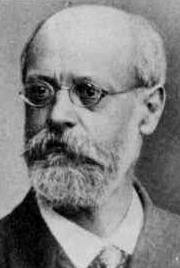
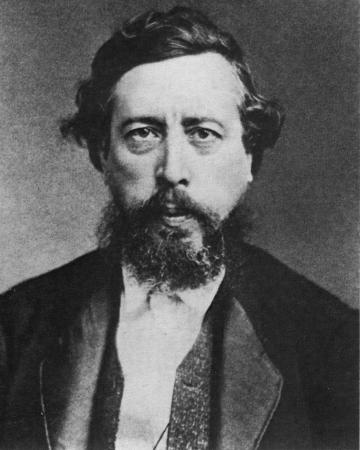 (1826-1900) After participating in the 1848 revolution, fled to Switzerland, then to England, returning to Germany in 1862. Liebknecht and Bebel were the first deputies of a left-wing party to be elected to the North German Reichstag. In Eisenach in 1869, Liebknecht and Bebel founded the Social-Democratic Workers' Party, and in 1891 were co-founders of the Social Democratic Party. Liebknecht was a member of the German Reichstag from 1874 until his death in 1900. See the
(1826-1900) After participating in the 1848 revolution, fled to Switzerland, then to England, returning to Germany in 1862. Liebknecht and Bebel were the first deputies of a left-wing party to be elected to the North German Reichstag. In Eisenach in 1869, Liebknecht and Bebel founded the Social-Democratic Workers' Party, and in 1891 were co-founders of the Social Democratic Party. Liebknecht was a member of the German Reichstag from 1874 until his death in 1900. See the 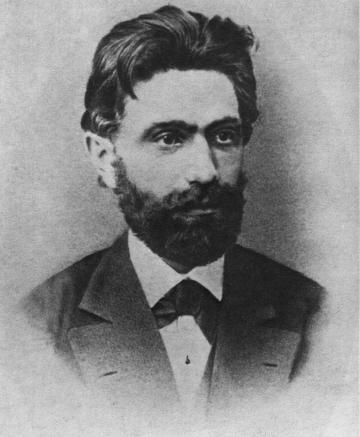 (1840-1913) Bebel had trained as a cabinet maker, and was introduced to socialist theory by the Lassallean German Workers' Association founded in 1863. In 1872, Bebel and Liebknecht were imprisoned for two years for their opposition to
(1840-1913) Bebel had trained as a cabinet maker, and was introduced to socialist theory by the Lassallean German Workers' Association founded in 1863. In 1872, Bebel and Liebknecht were imprisoned for two years for their opposition to  (1850-1932) Left Germany during the anti-Socialist laws to produce the Sozial Demokrat from Switzerland. Lived in London from 1888 to 1900 where he was close to Engels until Engels' death in 1895, and was named his literary executor. From 1896, Bernstein became an advocate of reformism, coining the aphorism: “The movement is everything, the final goal nothing”. See
(1850-1932) Left Germany during the anti-Socialist laws to produce the Sozial Demokrat from Switzerland. Lived in London from 1888 to 1900 where he was close to Engels until Engels' death in 1895, and was named his literary executor. From 1896, Bernstein became an advocate of reformism, coining the aphorism: “The movement is everything, the final goal nothing”. See 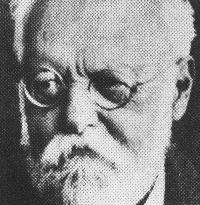 (1845-1938) In 1880, Kautsky joined Bernstein in Zurich who smuggled socialist material into Germany in defiance of the Anti-Socialist Laws. Bernstein introduced Kautsky to Marxism and Kautsky visited Marx and Engels in England. He founded Neue Zeit in Stuttgart in 1883 and was its editor until 1917. In this position he became the most influential leader of Social-Democracy and authority on Marxism until the Russian Revolution. In 1891, Kautsky's
(1845-1938) In 1880, Kautsky joined Bernstein in Zurich who smuggled socialist material into Germany in defiance of the Anti-Socialist Laws. Bernstein introduced Kautsky to Marxism and Kautsky visited Marx and Engels in England. He founded Neue Zeit in Stuttgart in 1883 and was its editor until 1917. In this position he became the most influential leader of Social-Democracy and authority on Marxism until the Russian Revolution. In 1891, Kautsky's 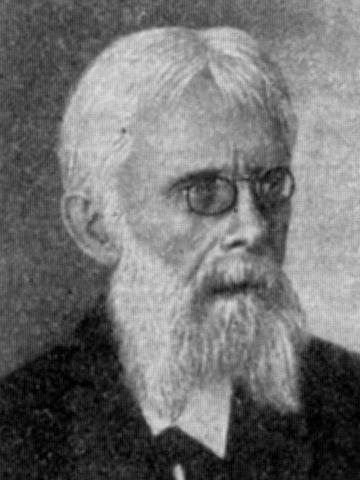 (1846-1919) Literary critic, writer and historian, a leader of the Left-wing of the German Social Democrats and later member of the
(1846-1919) Literary critic, writer and historian, a leader of the Left-wing of the German Social Democrats and later member of the 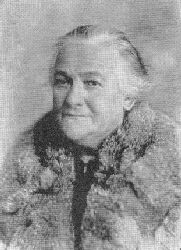
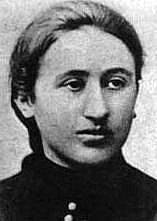
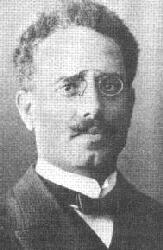
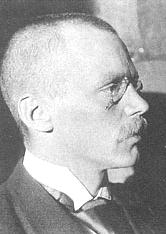

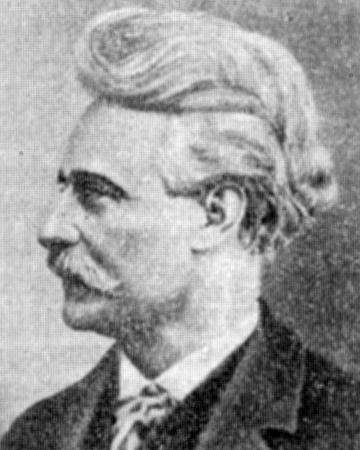
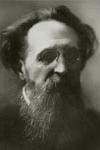 (1845-1922) Publisher of L'Égalité, leader of the Marxist wing of the French workers' movement. In 1879, together with Lafargue, he founded the French Workers' Party [Parti ouvrier]. In the 1880's and 90's Guesde led the fight against the
(1845-1922) Publisher of L'Égalité, leader of the Marxist wing of the French workers' movement. In 1879, together with Lafargue, he founded the French Workers' Party [Parti ouvrier]. In the 1880's and 90's Guesde led the fight against the 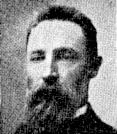
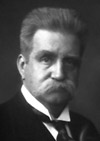 See
See 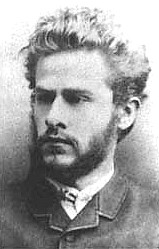
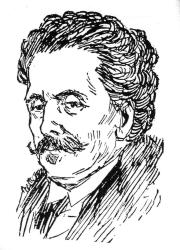

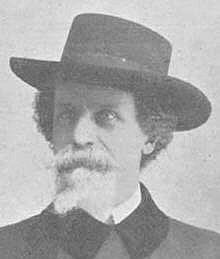
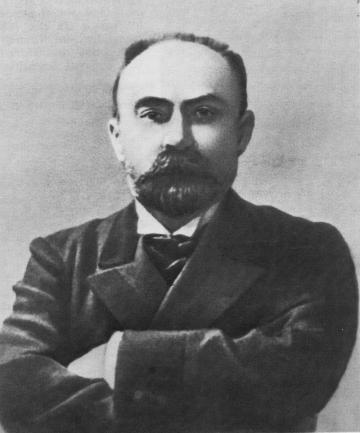 (1856-1918) Left
(1856-1918) Left 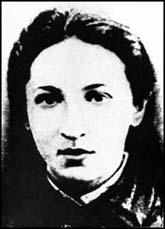
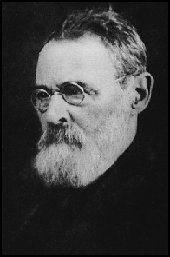

 (1870-1924) Left Russia to meet with Plekhanov, returning to Russia in order to unite all the revolutionary circles in Russia in a single Party – the R.S.D.L.P.. However, Lenin's conception at this time was for a party of “professional revolutionaries”, rather than the amateurish revolutinary circles or loose labour parties of Europe. Over this issue, Lenin split with all the older generation of Russian Marxists.
(1870-1924) Left Russia to meet with Plekhanov, returning to Russia in order to unite all the revolutionary circles in Russia in a single Party – the R.S.D.L.P.. However, Lenin's conception at this time was for a party of “professional revolutionaries”, rather than the amateurish revolutinary circles or loose labour parties of Europe. Over this issue, Lenin split with all the older generation of Russian Marxists. (1879-1940) Worked with Lenin on Iskra in 1902 but broke with Lenin after the
(1879-1940) Worked with Lenin on Iskra in 1902 but broke with Lenin after the 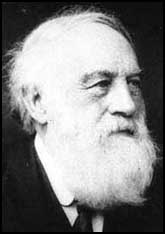 (1842-1922) While on holiday in the United States in 1881, Hyndman read a copy of Capital decided to form a Marxist political group when he arrived back in England. The
(1842-1922) While on holiday in the United States in 1881, Hyndman read a copy of Capital decided to form a Marxist political group when he arrived back in England. The 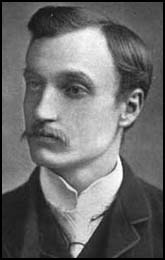
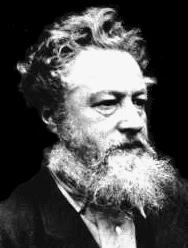
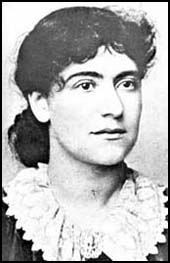
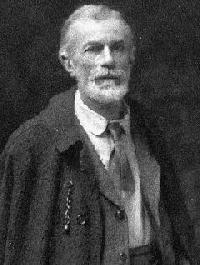
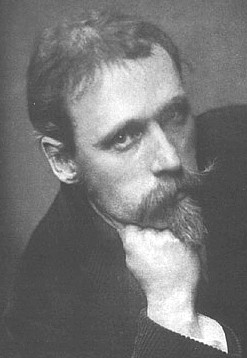
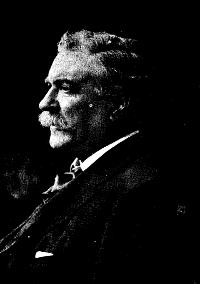
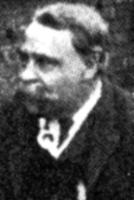
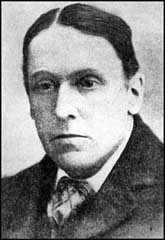
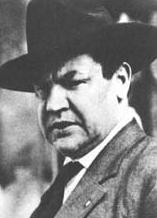
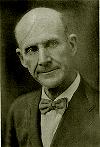
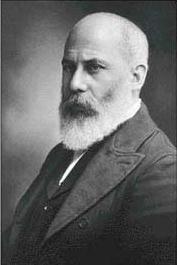
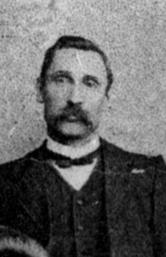
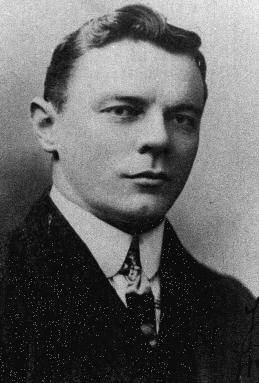 Marxists of the early years of the 20th century included Frank Hyett, John Curtin, Maurice Blackburn, Frank Anstey,
Marxists of the early years of the 20th century included Frank Hyett, John Curtin, Maurice Blackburn, Frank Anstey, 